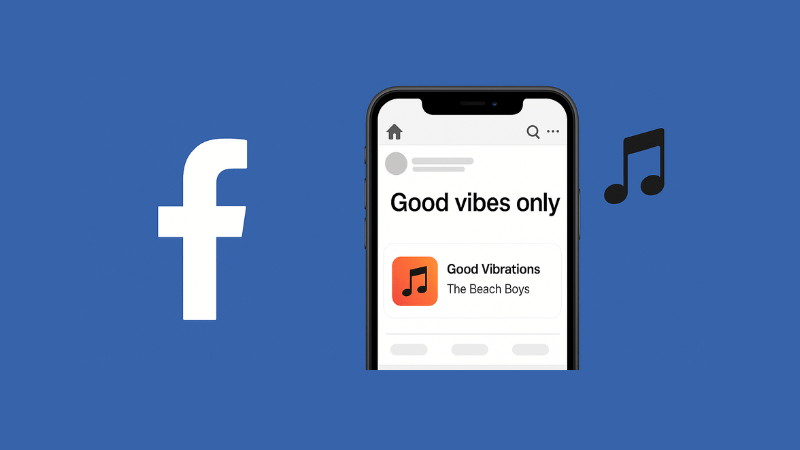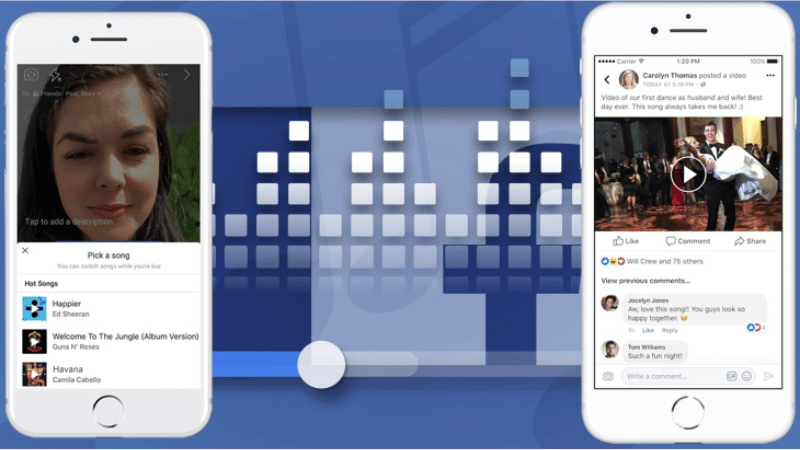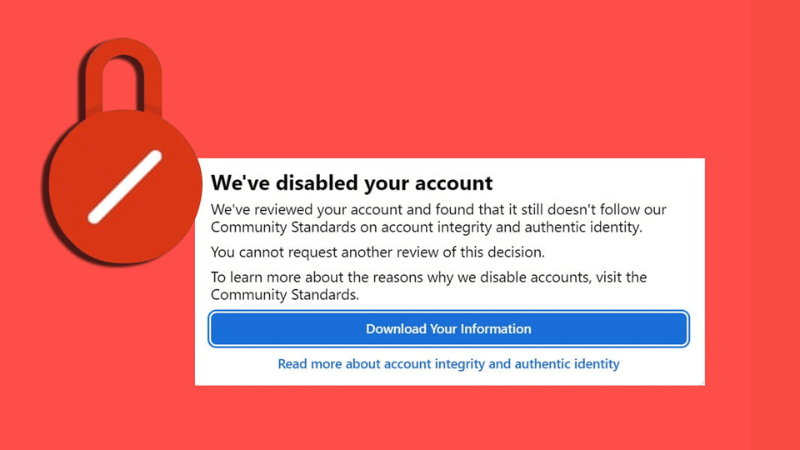As brands invest heavily in video content, choosing the right background music for Facebook ads becomes a critical factor in evoking emotion and increasing communication effectiveness. But among the millions of captivating songs online, many wonder: Can you use copyrighted music in Facebook ads? This seemingly simple question involves strict legal regulations regarding music copyright, which can lead to an ad campaign being taken down in minutes. In this article, we will analyze the copyright rules, explore the cases where usage is permitted, and discuss the consequences of infringement.
Music copyright and the boundary of use in digital advertising
Music is not only an element that enriches the emotion of an ad video but also a crucial part of shaping the brand image. However, in the world of digital advertising, using music is not as simple as choosing a favorite song and adding it to a clip. Behind every melody are intellectual property rights, performance rights, and commercial exploitation rights—all strictly protected by law. Therefore, understanding music copyright not only helps businesses avoid legal risks but also demonstrates professionalism and respect for the artist’s creative work.

Music copyright
Many people still think that copyright infringement means duplicating or re-posting the entire song, but the reality is not so simple. In advertising, even using a short segment of music, or an identifiable melody, without permission from the rights holder, is sufficient to constitute copyright infringement. Music copyright includes composition rights (composer), recording rights (record label), and public performance rights—meaning there are multiple overlapping layers of rights, and merely citing the source is often not enough.
This means that businesses wishing to use music in ads need a valid commercial use license or must use music from a royalty-free library. This is the fine line between inspiring with music and copyright violation, requiring marketers to be extremely cautious.
Why is Facebook particularly sensitive to music content?
Facebook, along with Instagram, is a platform with extremely strict copyright scanning systems. This system uses AI to identify sounds and melodies and match them with global copyright music databases. With just a few seconds of matching music, an ad video can be muted, have its display limited, or be completely taken down. This not only causes the ad budget to vanish but also directly affects brand credibility.
Facebook does this not to cause difficulty, but to protect the interests of artists and music producers. In the digital environment, music can spread rapidly after just one share, so the platform must ensure that all acts of commercial exploitation are transparent. For advertisers, understanding this mechanism is mandatory if they do not want their campaign to be removed before it even gains traction.
Cases where using copyrighted music is permitted
Using music in Facebook ads is not just about choosing a favorite melody and attaching it to a video. Music copyright is a strictly regulated field, especially when it relates to commercial purposes like advertising. To prevent your campaign from being taken down or flagged for violation, you need to clearly understand the cases where Facebook and the law permit the use of copyrighted music. Below are three common scenarios to help you legalize the use of music in your ads.

When you have a valid license or copyright contract
This is the safest and most professional way to use copyrighted music. If you or your brand signs a contract directly with the song’s rights holder (which could be the songwriter, a record label, or a music distribution company), you will have the right to use that piece of music within the agreed scope.
This license is typically divided into several types, the most common being a synchronization license (allowing the music to be combined with the ad video) and a public performance license (for content broadcast or shared online).
It is important to carefully read the terms: the copyright may be limited by usage duration, geographical scope, or permitted release platforms. If your ad video runs globally or has a long-term reuse plan, ensure the copyright contract fully covers these scopes. This method incurs costs but, in return, provides absolute peace of mind and avoids all legal risks.
When the Music Belongs to Facebook’s Commercial Sound Collection
Facebook (and Instagram) currently offers the Sound Collection—a royalty-free music library designed specifically for content creators and advertisers. All songs in this library are already licensed for commercial use, meaning you can embed them directly into your ad video without seeking permission or paying additional fees.
The big advantage of the Sound Collection is that you do not have to worry about copyright complaints or the video being blocked. Additionally, this library is quite diverse: it contains background music, sound effects, and many genres suitable for various campaigns, from product advertising and brand introduction videos to short viral content.
However, note that music in the Sound Collection is only permitted for use within the Meta ecosystem (Facebook and Instagram). If you plan to reuse the video on YouTube, TikTok, or other platforms, you will need to re-check the usage rights or replace the music accordingly.
When using non-copyrighted or legally publicly shared music
Another option is to use non-copyrighted music or music in the public domain. This is music that the creator has allowed free use of, or works that have passed their statutory copyright protection period.
Non-copyrighted music can be downloaded from reputable platforms like Epidemic Sound, Artlist, AudioJungle, or Pixabay Music, where artists provide music with clear commercial licenses. For each piece of music, you will see specific conditions: it may require attribution of the creator, prohibit editing, or only allow use in non-commercial videos. Read carefully to ensure the permitted scope is correct.
Meanwhile, music in the public domain is often classical pieces or works that have been publicly available for more than 70 years after the author’s death. You can absolutely use these for advertising, but you must ensure that the specific recording you use is also in the public domain, as many modern recordings are still owned by record labels.
Choosing music from a legal source not only helps protect the ad campaign from copyright infringement but also demonstrates the brand’s professionalism. Viewers today are very discerning—if a video is taken down or warned for a violation, the business’s credibility can be severely affected.
Actual consequences of music copyright infringement
With increasingly sophisticated automated review mechanisms, Facebook can detect segments of copyrighted music just seconds after a video is uploaded. A minor error like using a popular background track without a valid license is enough to halt the entire ad campaign, wasting the budget, data, and reach that the business invested in. These consequences not only impact ad performance but also cause the brand to be perceived as unprofessional by users.
Ad removal, account restriction, or lockout

When the system detects a copyright violation, Facebook will automatically remove the ad content containing the infringing music, along with a warning notification to the account holder. If the violation is repeated multiple times, the ad account may have its posting rights restricted or, worse, be permanently locked. This causes the business to lose all campaign data, optimization history, and previously built customer files.
For individuals or agencies managing multiple accounts, being “flagged” for copyright can affect the entire advertising system. Furthermore, the appeal process with Facebook is often lengthy, with no guarantee that the content will be restored, leading to a loss of communication opportunities during crucial periods.
Legal risks and business brand damage
Legally, the music copyright owner has the full right to demand compensation if they discover their work being used without authorization in commercial advertising. Depending on the severity of the violation, the business may face demands for content removal, damages, or even lawsuits. Such incidents not only cause financial loss but also severely damage brand reputation.
An ad campaign accused of copyright infringement can reduce consumer trust, especially in the online environment, where negative information spreads extremely quickly. Therefore, adhering to music copyright is not just a legal matter but also a way for businesses to show respect for artists while protecting a professional and sustainable image for their brand.
Frequently Asked Questions
Legally, both parties can be held responsible, depending on how the service contract is drafted. In many cases, the business is the party that directly benefits from the advertising, so it may be sued or required to pay compensation by the copyright owner. However, if the agency is the party that independently chose and inserted the infringing music, the responsibility will lean towards the agency. Therefore, the advertising contract should clearly stipulate which party is responsible for the copyright of the creative content to avoid disputes when infringement occurs.
No. A remix or cover is still a derivative work, and you need permission from the original copyright owner for legal use. Even if the new arrangement or vocals are new, the melody and lyrics are still protected. Using a cover song in an ad without a license from the original songwriter or publishing company is still considered a violation. In some cases, if the remixer has an independent commercial release license (having been sub-licensed), you might be able to seek permission directly from them, but this is rare and requires clear documentation.